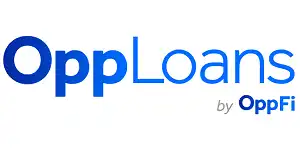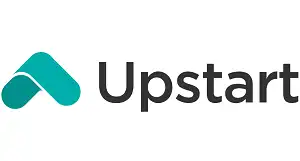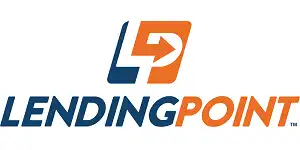Alternative credit data includes things like rent payments, bank account cash flow, and employment history. For people with poor credit or who are credit invisible, lenders like Upstart, OppLoans, and Earnin are safer than payday loans.
When you’re still rebuilding your credit, or haven’t had time to build up a credit history, period, loans can be hard to come by. For years, lenders have relied on credit scores as the most important factor to determine which borrowers are worth the lending risk. If loans for bad credit were available, they came with sky-high interest rates and inflexible terms.
However, this trend is changing; more and more lenders are using alternative credit data, or even providing loans with no credit check required.
What is Alternative Credit Data?
Without focusing on credit score, how do lenders judge whether or not you can repay a loan? They use what’s called “alternative credit data.”
The factors that usually go into a FICO score or a lending decision are known as “traditional credit data.” Traditional credit data includes financial factors associated with credit and loans, like:
- Credit card use
- History of loans and loan repayment (mortgages, student loans, auto loans, etc.)
- Length of credit history
- Amount you owe
- Bankruptcy records, if any
Someone who’s never taken out a credit card or a mortgage, or who had trouble repaying past debts for any reason, may be out of luck.
Read more: How Credit Works: Understand the Credit History Reporting System
Lending companies are starting to realize how many consumers are left out of traditional credit data, and they’re using alternative credit data to supplement or even replace old measures.
Alternative credit data can include any financial data outside the traditional credit reporting system, as long as it gives an accurate picture of someone’s financial behavior and reliability. For instance, lenders who provide no credit check loans may look at:
- Rent payments
- Utility payments
- Insurance payments
- Cellphone payments
- Bank account history (length of account, savings amounts, deposits and withdrawals, etc.)
- Bank account cash flow
- Employment history
- Property and asset values
- Other data, like government records and education history
Many banks already take alternative credit data into account when they’re making decisions. They may use a process called “cash flow underwriting,” which considers customers’ bank account balance and their history of regular payments like rent and utilities.
This method can be hugely beneficial for renters. Traditional FICO scores give homeowners a bump if they have a history of on-time, in-full mortgage payments, and now responsible renters can enjoy similar credit benefits.
Broader credit data also opens up lending to consumers who are “credit invisible.” You’re considered credit invisible if you don’t have enough credit history in your file to calculate a score. If this is the case for you, you’re in good company with about 26 million other Americans (or one in 10 U.S. adults).
Read more: What Does it Mean to Be Credit Invisible?
Limits of Traditional Credit Scoring Models
The rise in alternative credit data is a step towards equity in lending. Traditional credit models tend to favor people who own homes or have high incomes — two accomplishments that are made easier by generational wealth. Homeownership itself can be a wealth-builder.
But many people have been excluded from homeownership for a variety of reasons. One predominant reason is racial discrimination. The long-time practice of redlining — policies that discriminate against people in certain geographic locations, usually Black Americans, in mortgage lending — has affected many Black borrowers’ access to wealth-building tools. And Black and Latinx consumers are disproportionately likely to be sued for debt collection.
When lenders consider a wider range of credit data like rental and cellphone payments, they make lending easier for consumers in multiple demographic groups — from Black and Latinx borrowers to borrowers with low incomes.
Read more: What is Redlining?
Best Loans that Use Alternative Credit Data
The lenders on our list look at a broader financial profile of potential borrowers — from rent payments to employment history and more. Though some of these lenders still check credit, a poor credit score or even a blank credit history won’t automatically disqualify you.
- Best for small loans: OppLoans
- Best for fast approvals: Upstart
- Best for no interest or fees: Earnin
- Best for building credit: Oportun
- Best for repayment terms: LendingPoint
OppLoans: Best for Small Loans
- Requirements: OppLoans doesn’t have many firm qualifying requirements, but they do check factors like your income, bank account cash flow, and employment status.
- Loan amounts: $500 to $4,000.
- Repayment terms: 9 to 18 months.
- APRs: up to 160%
OppLoans offers loans to those with bad credit. Although their APRs are still very high, they aren't as bad as traditional payday or title loans, and they typically offer longer loan terms.
- Easy to apply
- Build Credit History
- Quick Funding
- Very high interest rates
- Loan terms and availability differ greatly between states
For credit-invisible borrowers who need small loans, OppLoans may be worth considering. OppLoans partners with a credit bureau that doesn’t use traditional credit scores in its credit histories at all. Their loans are unsecured, meaning you don’t have to put down collateral to borrow. Approved borrowers can get funds as early as the next business day.
Visit OppLoans or read our full review.
Upstart: Best for Fast Approvals
- Requirements: If you have a full-time or regular part-time job, you can apply. Upstart does accept applicants without enough credit history for a score. If you do have a credit score, it should be at least 300 (which is on the very low end).
- Loan amounts: $1,000 to $50,000.
- Repayment terms: 3 or 5 years.
- APRs: 4.60% to 35.99%
Upstart is a peer-to-peer (P2P) lending model that matches borrowers with lenders to cut through the red tape of traditional banking procedures. Upstart provides personal loans for just about any purpose, while focusing primarily on the recent college graduate market.
- May be offered for borrowers with new credit
- Strong company reputation
- Not for poor or average credit
- High origination fee
Upstart is a great option for recent graduates with jobs but thin credit histories. Their credit model looks at employment, education, and debt-to-income ratios. They can usually send funds within one business day of approval, and they have no prepayment penalty if you pay your loans off early.
Visit Upstart or read our full review.
Earnin: Best for No Interest or Fees

- Requirements: Earnin users need regular pay schedules, direct deposit to their checking account, and some type of timekeeping system for their work hours.
- Loan amounts: Up to $100/day or $500/pay period.
- APRs: No interest or fees — instead, tip what you think is fair.
Earnin works a little differently than other lenders; it offers loans by giving you an advance on your next paycheck. Connect your bank account and pay schedule info, and Earnin will spot you money from your future salary, giving you a loan with no credit check required.
Visit Earnin or read our full review.
Oportun: Best for Building Credit

- Requirements: Proof of income and up to four personal references.
- Loan amounts: $300 to $20,000.
- Repayment terms: 12 to 48 months.
- APRs: See current rates on Oportun.
Oportun offers both unsecured and secured personal loans. With secured loans, you offer assets as collateral (like a car) in exchange for better terms and a lower interest rate. While Oportun does check your credit, they consider alternative credit data, and they don’t have a minimum credit score. Additionally, they submit your on-time payment info to the credit bureaus — which helps you build credit for the future.
LendingPoint: Best for Repayment Terms
- Requirements: A minimum annual income of $35,000 and a personal bank account.
- Loan amounts: $2,000 to $36,500.
- Repayment terms: 24-72 months.
- APRs: 7.99% to 35.99%
LendingPoint can help even bad credit borrowers in need of cash find the funding needed as quickly as possible. Although the APR will be fairly high for most bad credit borrowers, you’ll get the funds you need the next business day after approval. This can help you cover your expenses as quickly as possible.
- Quick funding
- No prepayment penalties or charge for extra payments
- Origination fee up to 8%
- High maximum APR
LendingPoint’s loans for bad credit look beyond your credit history, with a data-driven funding model that considers factors like your debt-to-income and payment-to-income ratio. There’s no minimum credit score requirement.
Why Not Get a Payday Loan?
People seeking loans with no credit check may be tempted by payday loan offers, which seem to guarantee funding to anyone through a simple approval process. But if payday loans sound too good to be true, that’s because they are. No matter which payday lender you choose, the drawbacks will exceed the benefits, including:
- The expense. Payday loans almost always cost borrowers more money in the long run. Their APRs are usually in the triple digits, around 400% or higher.
- The small amount. Many payday loans are limited to under $500. If this amount is all you need, it’s best to find a legitimate lender and avoid sky-high APRs.
- The short repayment terms. Your payday loan will be due for repayment usually between one and four weeks. Many lenders count on you not being able to repay by then, so they’ll allow you to renew or “roll over” your loan with increased interest charges.
Read more: What is a Payday Loan and Why is it a Really Bad Idea to Get One?
Summary
One perk of no credit check loans is that they’re based on your current financial behavior, like rent, employment, and responsible spending, not on financial decisions you may have made in the past.
With more lenders getting on board with alternative credit data, it’s possible there will be even more competitive loans with no credit check or loans for bad credit from providers in the future. In the meantime, people with thin or spotty credit files have plenty of options to borrow money.


